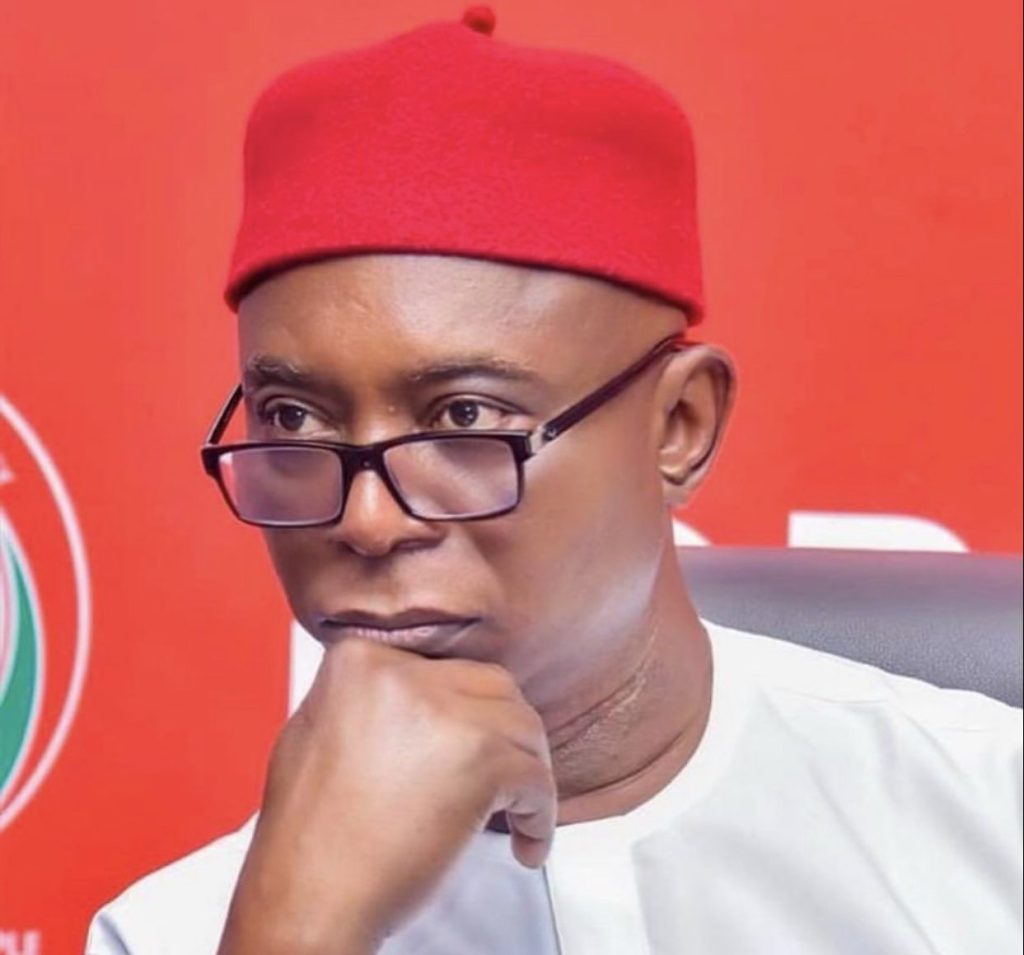Senator Ned Nwoko’s departure from the Peoples Democratic Party (PDP) has sparked a wave of political analysis and speculation in Delta State, Nigeria. Nwoko, representing Delta North Senatorial District, formally resigned from the party on January 30, 2025, citing irreconcilable factionalism and internal strife as the primary reasons for his decision. His resignation letter, addressed to his Ward 8 Chairman in Aniocha North Local Government Area, painted a picture of a party deeply divided, with recent physical altercations between top functionaries serving as a stark illustration of the fractured state of affairs. While Nwoko pledged his continued commitment to his constituents and the broader interests of Delta North, his departure raises questions about the future political landscape of the state.
The narrative presented by Nwoko emphasizes the detrimental impact of internal divisions within the PDP, suggesting that the party’s fragmentation hinders its ability to effectively represent the interests of the people. He highlights the escalating tensions and conflicts within the party, culminating in physical confrontations between key figures. This portrayal casts Nwoko as a principled actor, prioritizing unity and effective governance over partisan loyalties. By framing his resignation as a response to the dysfunctional state of the PDP, he seeks to position himself as a leader concerned with the well-being of his constituents and the broader political landscape.
However, a contrasting interpretation of Nwoko’s defection has emerged from within the PDP. Fred Oghenesivbe, Director General of the Delta State Orientation and Communication Bureau and an aide to Governor Sheriff Oborevwori, contends that Nwoko’s departure is motivated by a fear of failing to secure the party’s governorship ticket in the 2027 elections. Oghenesivbe argues that Nwoko’s political standing within the PDP had weakened, characterized by a disconnect from the party structure and a lack of engagement with key party leaders, particularly Governor Oborevwori. This perspective suggests that Nwoko’s resignation is a strategic move, preempting a potential loss in the party’s primary elections.
Oghenesivbe’s assertion introduces a layer of political maneuvering and personal ambition into the narrative surrounding Nwoko’s defection. By framing Nwoko’s decision as a preemptive measure driven by fear of electoral defeat, Oghenesivbe attempts to diminish the impact of Nwoko’s criticisms of the PDP’s internal strife. This counter-narrative portrays Nwoko not as a principled reformer but as a political opportunist seeking to secure his future prospects. The clashing interpretations underscore the complex interplay of personal ambition, party politics, and public perception in shaping the political landscape of Delta State.
The contrasting narratives surrounding Nwoko’s resignation highlight the challenges of discerning the true motivations behind political decisions. While Nwoko presents his departure as a principled stand against internal divisions, the counter-narrative suggests a strategic calculation driven by personal ambition. The public is left to interpret the available information and draw their own conclusions. The competing narratives underscore the importance of critical analysis and the recognition that political actions are often multifaceted, driven by a confluence of factors rather than a single, easily identifiable motive.
Nwoko’s defection adds another layer of complexity to the already intricate political dynamics of Delta State. The state’s political landscape has been characterized by intense competition and shifting alliances, with various factions vying for power and influence. Nwoko’s departure could potentially reshape the balance of power within the state, creating new alliances and altering existing political calculations. The long-term implications of his decision remain to be seen, but it is clear that his move has injected a new element of uncertainty into the political future of Delta State.
The unfolding political drama in Delta State serves as a microcosm of the larger political landscape in Nigeria, where party loyalties are often fluid and political maneuvering is commonplace. Nwoko’s defection highlights the challenges of building and maintaining stable political parties, as well as the complex interplay of personal ambition and ideological convictions in shaping political decisions. The events in Delta State offer a glimpse into the dynamic and often unpredictable nature of Nigerian politics.


